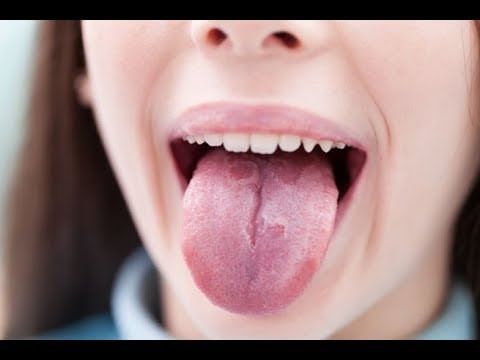Know More About Burning Mouth Syndrome!
Burning Mouth Syndrom/ Burning Sensation of mouth
Burning mouth syndrome is the medical term for ongoing (chronic) or recurrent burning in the mouth without an obvious cause. This discomfort may affect the tongue, gums, lips, inside of your cheeks, roof of your mouth (palate) or widespread areas of your whole mouth. The burning sensation can be severe, as if you scalded your mouth.
Burning mouth syndrome usually appears suddenly, but it can develop gradually over time. Unfortunately, the specific cause often can't be determined.
Symptoms
Symptoms of burning mouth syndrome may include:
-
A burning or scalding sensation that most commonly affects your tongue, but may also affect your lips, gums, palate, throat or a whole mouth
-
A sensation of dry mouth with increased thirst
-
Taste changes in your mouth, such as a bitter or metallic taste
-
Loss of taste
-
Tingling, stinging or numbness in your mouth
-
A progressive pain in the mouth which starts in the morning gets worse in the middle of the day, and then the pain ceases at night.
The discomfort from burning mouth syndrome typically has several different patterns. It may:
-
Occur every day, with little discomfort when you wake, but become worse as the day progresses
-
Start as soon as you wake up and last all-day
-
Come and go
Whatever pattern of mouth discomfort you have, burning mouth syndrome may last for months to years. In rare cases, symptoms may suddenly go away on their own or become less frequent. Some sensations may be temporarily relieved during eating or drinking.
Burning mouth syndrome usually doesn't cause any noticeable physical changes to your tongue or mouth.
When to see a dentist?
If you have discomfort, burning or soreness of your tongue, lips, gums or other areas of your mouth, see your dentist. They may need to work together to help pinpoint a cause and develop an effective treatment plan.
Causes
The cause of burning mouth syndrome can be classified as either primary or secondary.
- Primary burning mouth syndrome - When no clinical or lab abnormalities can be identified, the condition is called primary or idiopathic burning mouth syndrome. Some research suggests that primary burning mouth syndrome is related to problems with taste and sensory nerves of the peripheral or central nervous system.
- Secondary burning mouth syndrome - Sometimes burning mouth syndrome is caused by an underlying medical condition. In these cases, it's called secondary burning mouth syndrome.
Underlying problems that may be linked to secondary burning mouth syndrome include:
-
Dry mouth (xerostomia), which can be caused by various medications, health problems, problems with salivary gland function or the side effects of cancer treatment
-
Other oral conditions, such as a fungal infection of the mouth (oral thrush or Oral candidiasis), an inflammatory condition called oral lichen planus or a condition called Geographic tongue that gives the tongue a maplike appearance
-
Nutritional deficiencies, such as a lack of iron, zinc, folate (vitamin B-9), thiamin (vitamin B-1), riboflavin (vitamin B-2), pyridoxine (vitamin B-6) and cobalamin (vitamin B-12)
-
Allergies or reactions to foods, food flavourings, other food additives, fragrances, dyes or dental-work substances
-
Reflux of stomach acid (gastroesophageal reflux disease, or GERD) that enters your mouth from your stomach
-
Certain medications, particularly high blood pressure medications
-
Oral habits, such as tongue thrusting, biting the tip of the tongue and teeth grinding (bruxism)
-
Endocrine disorders, such as diabetes or underactive thyroid (hypothyroidism)
-
Excessive mouth irritation, which may result from overbrushing your tongue, using abrasive toothpaste, overusing mouthwashes or having too many acidic drinks
-
Psychological factors, such as anxiety, depression or stress
Wearing dentures, even if they don't fit well and cause irritation, doesn't generally cause burning mouth syndrome, but dentures can make symptoms worse.
Risk factors
Burning mouth syndrome is uncommon. However, your risk may be greater if:
-
You're a woman
-
You're perimenopausal or postmenopausal
-
You're over the age of 50
Burning mouth syndrome usually begins spontaneously, with no known triggering factor. However, certain factors may increase your risk of developing burning mouth syndrome, including:
-
Recent illness
-
Some chronic medical disorders such as fibromyalgia, Parkinson's disease, autoimmune disorders and neuropathy
-
Previous dental procedures
-
Allergic reactions to food
-
Medications
-
Traumatic life events
-
Stress
-
Anxiety
-
Depression
Complications
Complications that burning mouth syndrome may cause or be associated with are mainly related to discomfort. They include, for example:
-
Difficulty falling asleep
-
Difficulty eating
-
Depression
-
Anxiety
Prevention
There's no known way to prevent burning mouth syndrome. But by avoiding tobacco, acidic foods, spicy foods and carbonated beverages, and excessive stress, you may be able to reduce the discomfort from burning mouth syndrome or prevent your discomfort from feeling worse.
Lifestyle and home remedies
In addition to medical treatment and prescription medications, these self-help measures may reduce your symptoms and your mouth discomfort:
-
Drink plenty of fluids to help ease the feeling of dry mouth, or suck on ice chips.
-
Avoid acidic foods and liquids, such as tomatoes, orange juice, carbonated beverages and coffee.
-
Avoid alcohol and products with alcohol, as they may irritate the lining of your mouth.
-
Don't use tobacco products.
-
Avoid spicy-hot foods.
-
Avoid products with cinnamon or mint.
-
Try different mild or flavour-free toothpastes, such as one for sensitive teeth or one without mint or cinnamon.
-
Take steps to reduce stress.
Coping and support
Burning mouth syndrome can be uncomfortable and frustrating. It can reduce your quality of life if you don't take steps to stay positive and hopeful.
Consider some of these techniques to help you cope with the chronic discomfort of burning mouth syndrome:
-
Practice relaxation exercises, such as yoga.
-
Engage in pleasurable activities, such as physical activities or hobbies, especially when you feel anxious.
-
Try to stay socially active by connecting with understanding family and friends.
-
Join a chronic pain support group.
-
Talk to a mental health professional for strategies that can help you cope.
Treatment for Burning Mouth Syndrome
The management for burning mouth syndrome is intended to address the symptoms and treat the root cause. It should be noted that there is still no specific treatment for BMS alone. Below are some effective treatment options:
For psychological problems, oral antidepressant medications should help control the anxiety attacks that would trigger the person’s habits like teeth grinding.
-
Sufficient intakes of essential nutrients like vitamin b complex, iron and zinc
-
Saliva replacement products
-
Specific oral rinses or lidocaine
-
Capsaicin, a pain reliever that comes from chilli peppers
-
An anticonvulsant medication called clonazepam (Klonopin)
-
Certain antidepressants
-
Medications that block nerve pain
-
Cognitive behavioural therapy to develop strategies to address anxiety and depression and cope with chronic pain
Below are also some of the things a person can do in order to relieve the symptoms of burning mouth syndrome:
Avoid using oral antiseptics or toothpaste that contain lauryl sulfate, cinnamon and a high amount of alcohol
-
Drink more water to relieve the dryness of mouth and throat
-
Do not engage in stressful activities
-
Avoid drinking alcoholic beverages and smoking tobacco
-
Suck on ice cubes or chips to numb the pain in the mouth
-
Avoid acidic and spicy foods such as soft drinks, chilli flavoured foods, and fruit juices
-
Try using baking soda as a toothpaste when brushing your teeth



+1.svg)
